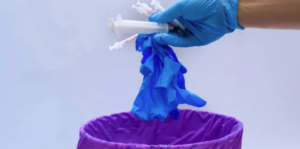- Blog
- How do you set up a CSR policy in a laboratory?
How do you set up a CSR policy in a laboratory?
Corporate Social Responsibility (CSR) initiatives are becoming increasingly important in all sectors, including laboratories.
By integrating sustainable and responsible practices, laboratories can not only reduce their environmental impact, but also improve their image and overall performance.
Here are some exemplary CSR actions that laboratories can undertake.
1. Reducing waste
Laboratories often generate a considerable amount of waste, particularly chemicals and plastics. Setting up recycling programmes and reducing waste at source are key measures.
Using less harmful chemicals and reusable materials can significantly reduce the environmental footprint.
In addition, selective waste sorting and collaboration with companies specialising in hazardous waste treatment are essential.

2. Energy efficiency
Optimising energy consumption is a priority. Laboratories can adopt energy-efficient equipment and automate heating, ventilation and air conditioning (HVAC) systems to reduce consumption.
The use of renewable energy, such as solar panels, can also help to reduce the carbon footprint.
3. Responsible use of water
Water is a precious resource, and its responsible management is crucial. Laboratories can set up water recycling systems and use equipment that minimises water consumption.
Installing low-flow taps and water monitoring systems can help to identify and resolve wastage.
4. Employee well-being
CSR actions are not limited to the environment. They also encompass the well-being of employees. Laboratories can promote a safe and healthy working environment, offer ongoing training and encourage a work-life balance.
Initiatives such as teleworking, flexible working hours and wellness programmes can improve employee satisfaction and productivity.
5. Community involvement
Laboratories can play an active role in their communities by supporting local projects, educational programmes and public health initiatives.
Partnering with schools for science awareness programmes and organising open days are examples of actions that strengthen links with the community.
6. Sustainable and responsible purchasing
One of the biggest problems in scientific activity is undoubtedly the low rate of re-use of equipment and consumables that are still functional.
By buying second-hand or obsolete equipment, a laboratory can significantly reduce its environmental impact. It is also possible to sell unused scientific equipment and put it back on the market.
At Labsquare, we add value to all these so-called ‘dormant’ stocks to enable laboratories to avoid buying new.
